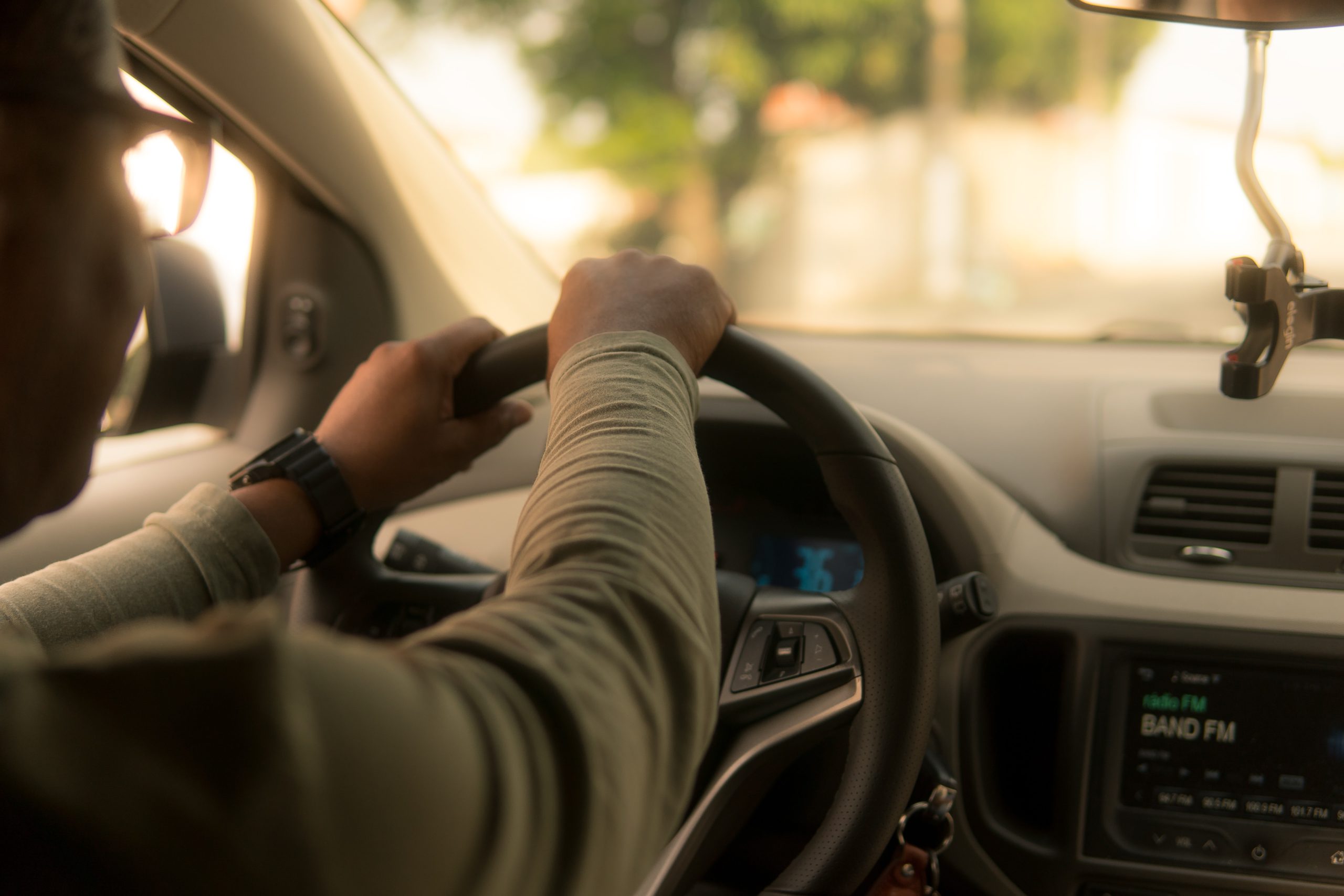
GET STARTED WITH A FREE CUSTOM SCHEDULE AND PLAN OVERVIEW ON OUR MOBILE APP →
TRY BATELLE FOR FREE →

How can parental sleep deprivation affect a family’s day-to-day life? Getting a baby to sleep can be difficult, and the struggles involved over the course of infanthood can have outsized effects on not only the parent’s nights, but the whole family’s life. Here, we explore how parental sleep deprivation affects motor vehicle accidents, and how solving baby sleep is not just about a well-rested baby.
One of the main worries for any parent is the safety of their children on the roads. Rightly so (it’s the leading cause of accidental death in children). Parents know the risks of driving drunk or speeding when they have their most precious cargo on board. However, there is a risk that is consistently underestimated given both its prevalence and consequences: drowsy driving. Getting enough sleep each night is not only good for health and wellbeing, it’s also crucial to ensure your family is kept safe on the roads.
According to the US Department of Transportation, 3 children were killed on the roads and ~380 children were injured every day in the US in 2020. How many of these could be prevented if the parent drivers were better rested? How much can a good night’s sleep affect these statistics?
“Operating on less than five hours of sleep, your risk of a car crash increases threefold.”
Drowsy driving is very dangerous and increases the chances of crashing exponentially.
In his book ‘Why We Sleep‘, author and neuroscientist Matthew Walker explores the dangers of drowsy driving. According to Walker, in the US alone, more than 250,000 people fall asleep while at the wheel every day, with over 56 million Americans admitting to struggling to stay awake while driving each month.
“Operating on less than five hours of sleep, your risk of a car crash increases threefold. Get behind the wheel of a car when having slept just four hours or less the night before and you are 11.5 times more likely to be involved in a car accident” Walker writes.
Walker notes that “the relationship between decreasing hours of sleep and increased mortality risk of an accident is not linear, but instead exponentially mushrooms. Each hour of sleep lost vastly amplifies that crash likelihood, rather than incrementally nudging it up”.
The inconvenient truth is that lack of sufficient sleep is a life-threatening risk to people on the roads, and unfortunately even more so to the statistically least-rested among us: new parents.
“For parents, this sleep deprivation compounds.”
Parents on average are 1.9x – 4.3x more at risk of crashing due to their lack of sleep.
An average parent gets between 4.75-6 hours of sleep per night for the first year after having a baby. Note that the graph above shows the effect of one bad night’s sleep. For parents, this sleep deprivation compounds: day-in day-out, weekday through weekend. About 50% of children will go on to develop chronic sleep issues after the 12-month mark.
Parents and families are at higher risk of an accident for at least the first year, and depending on how a child’s chronic sleep issues affect the parent’s sleep, potentially longer.
Being sleep deprived is (unfortunately) normalized for new parents.
New parents expect to be sleep deprived. For the first few months, there are things you can do to maximize sleep, but you will likely still be dealing with at least a few wakeups. However, from about 6 months onwards, there is no reason your child (assuming they have no neurological disorders) shouldn’t be able to sleep through the night. In fact, night wakings past about 6 months are behavioral in nature, meaning they are both avoidable and solvable by changing parent/child interactions.
“Lack of sleep dramatically impairs attention.”
Being drowsy worsens the effect of other impairments and risks.
The leading causes of recorded road accidents are speeding, drunk driving, and distracted driving. Here is the thing about sleep deprivation though: it is an accelerant to the ‘primary’ risk. What I mean is that if you take a drunk driver, a speeding driver, or a distracted driver and you add in a dash of sleep deprivation, “they magnify each other, like two drugs whose effects are harmful by themselves but, when taken together, interact to produce truly dire consequences” (Walker, Why We Sleep).
Similarly, researchers have found that lack of sleep dramatically impairs attention, and causes “microsleeps” i.e. no reaction, as opposed to only a small reaction. It’s evident how dangerous this combination of distraction and sleep deprivation could be, and is.
Sleep deprivation goes undiagnosed and unquantified.
Especially driving with children in the car, parents can often be distracted. One child crying in the backseat, the other tapping your shoulder trying to get your attention, while your mother calls all at once. Should an accident happen, the recorded cause will be “distracted driving”. Conversely, if a driver is drunk, testing alcohol in the blood is definitive. They either are or are not over the limit.
Trying to gauge levels of sleep deprivation is incredibly difficult as there is no objective measure. Fatigue flies under the radar with road safety officers, emergency workers (how do they test for fatigue?), and governments (relative to education about drunk driving, the dangers of drowsy driving get less than 1% of the annual budget (Walker, Why We Sleep)).
The more time on the road, the higher the risk of an accident
Parents spend a lot of time in the car with their children. According to a survey covered by Motherly, 51% of parents spend more than five hours a week driving their children around, and 13% spend more than 10 hours. It follows that this increases their risk of being in an accident, particularly as they have an increased likelihood of being sleep-deprived.
Conclusion: to safeguard against car accidents, invest in sleep.
There are multiple reasons for not getting enough sleep. If you have sleep apnea or are snoring, a great resource to look at is Breath. If you are working long hours that are preventing getting your 8 hours, perhaps reconsider your boundaries or your job (and read Why We Sleep if you need more convincing of the health ramifications). If you are losing sleep because your child is waking you up, solve the issue by changing your behavior.
But whatever the cause, don’t underestimate the dangers of drowsy driving. Getting more/better sleep is one of the easiest and healthiest ways to prevent accidents, as well as its myriad of other parallel benefits.
